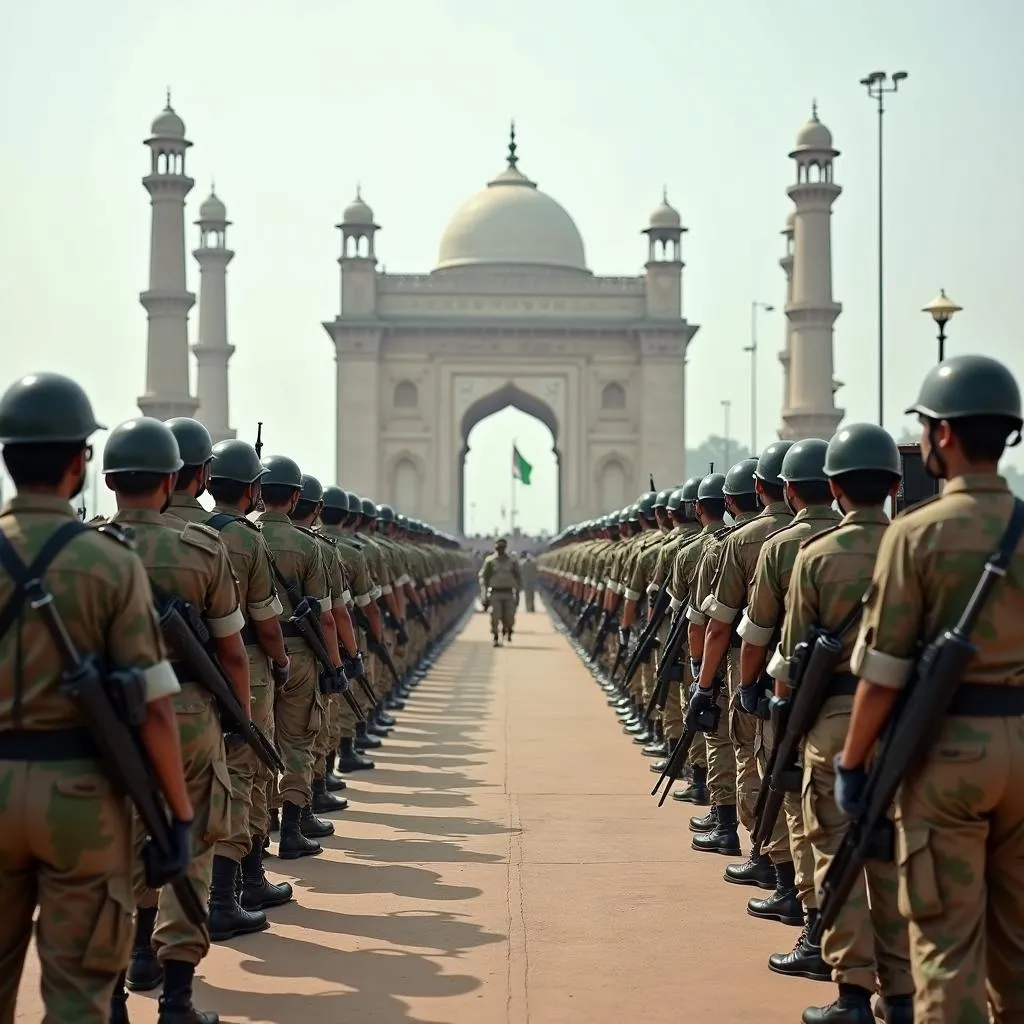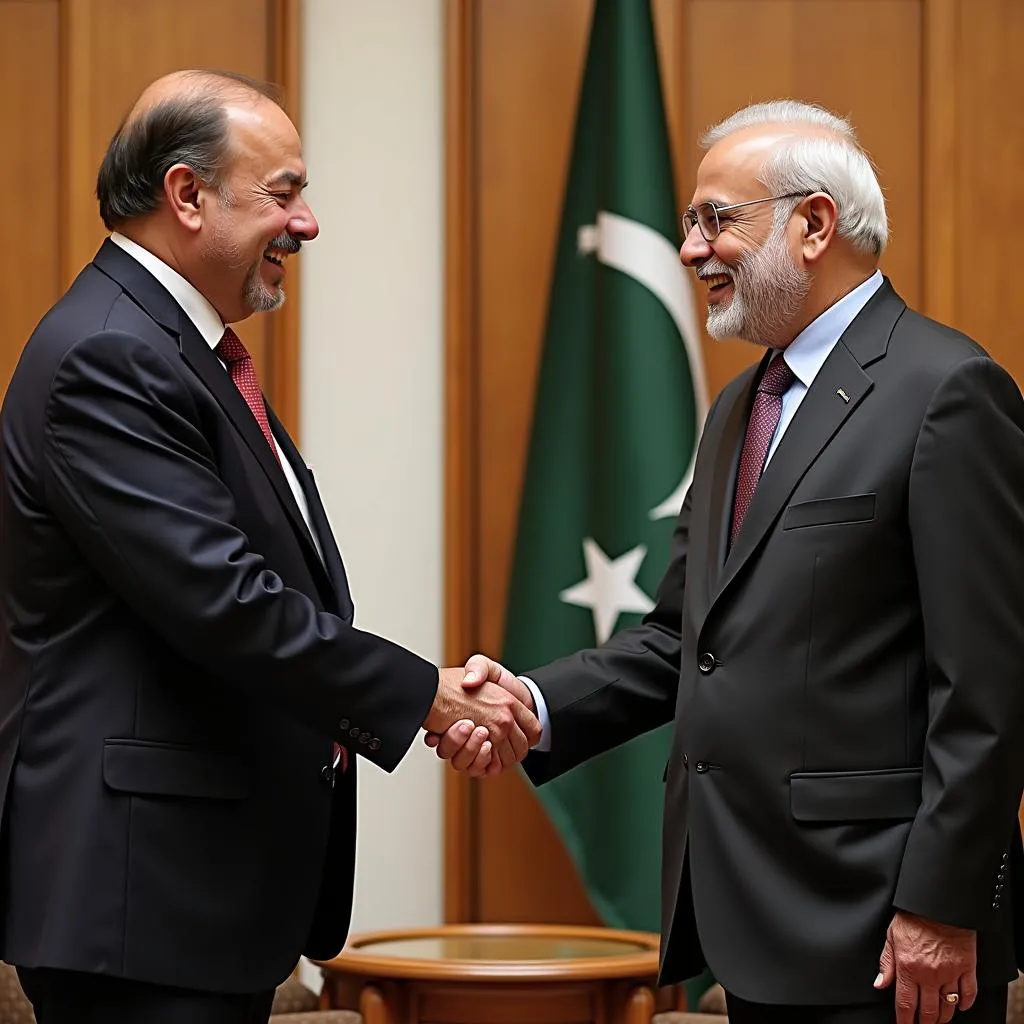India and Pakistan, two neighboring South Asian nations, share a complex and often turbulent history. The partition of British India in 1947, which led to the creation of the two independent states, was marked by widespread violence and displacement. Since then, relations between the two countries have been characterized by mistrust, hostility, and several armed conflicts.
The Key Issues Dividing India and Pakistan
At the heart of the India-Pakistan conflict lies the disputed territory of Kashmir. Both countries claim the entire region, which has led to three major wars and numerous smaller skirmishes. The issue of Kashmir remains a major stumbling block in bilateral relations, with both sides unwilling to compromise on their respective positions.
Beyond Kashmir, other issues that contribute to the tense relationship include:
-
Terrorism: India accuses Pakistan of supporting and harboring terrorist groups that operate within its borders, particularly those targeting Indian-administered Kashmir. Pakistan denies these allegations, claiming it is also a victim of terrorism.
-
Water disputes: The Indus Waters Treaty, signed in 1960, regulates the sharing of water from the Indus River and its tributaries. However, tensions have arisen in recent years over India’s construction of dams upstream, which Pakistan fears will reduce its water supply.
-
Border disputes: Aside from Kashmir, there are other disputed border areas between India and Pakistan, such as the Sir Creek region. These disputes often lead to military standoffs and heighten tensions.
-
Historical grievances: The legacy of partition, with its associated violence and displacement, continues to cast a long shadow on India-Pakistan relations.
 Soldiers at the India Pakistan border
Soldiers at the India Pakistan border
The Impact of the Conflict
The ongoing conflict between India and Pakistan has had a profound impact on both countries, both domestically and in their international relations.
-
Economic cost: The rivalry has led to a massive military build-up on both sides, diverting resources from crucial sectors like education and healthcare. Trade and economic cooperation, which could benefit both nations, is limited due to political tensions.
-
Security concerns: The risk of conflict remains high, and both countries have developed nuclear weapons, adding a dangerous dimension to the rivalry. The possibility of an accidental or intentional nuclear exchange is a constant concern for the region and the world.
-
Regional instability: The India-Pakistan conflict has a destabilizing effect on South Asia, hindering regional cooperation and integration. Other countries in the region are often forced to take sides or navigate a complex geopolitical landscape.
Is There a Path to Peace?
Despite the deep mistrust and animosity, there have been intermittent efforts to improve relations between India and Pakistan. These efforts have included:
-
Dialogue: Both countries have engaged in talks at various levels, but progress has been slow and often derailed by incidents of violence.
-
Confidence-building measures: These have included measures to reduce tensions along the Line of Control (LoC) in Kashmir, people-to-people contacts, and cultural exchanges.
-
Backchannel diplomacy: Informal channels of communication have sometimes been used to explore potential areas of cooperation.
However, achieving lasting peace between India and Pakistan will require sustained political will and a willingness to address the underlying issues that fuel the conflict.
 Diplomatic meeting between India and Pakistan
Diplomatic meeting between India and Pakistan
The Role of the International Community
The international community has a vested interest in promoting peace and stability in South Asia. Several countries and organizations have played a role in encouraging dialogue and confidence-building measures between India and Pakistan.
-
The United States: The US has historically been a key player in mediating between India and Pakistan. It has urged both countries to resolve their differences peacefully and through dialogue.
-
China: China has close ties with both India and Pakistan and has played a role in trying to de-escalate tensions between them.
-
The United Nations: The UN has a long-standing involvement in the Kashmir issue and has called for a peaceful resolution to the conflict.
Conclusion
The relationship between India and Pakistan is one of the most complex and challenging in the world. The disputed territory of Kashmir, terrorism, and historical grievances continue to fuel mistrust and animosity between the two nuclear-armed neighbors. While there have been attempts at dialogue and confidence-building measures, lasting peace will require sustained political will and a commitment to addressing the root causes of the conflict. The international community has a crucial role to play in encouraging dialogue and supporting efforts to build a more peaceful and stable South Asia.
Frequently Asked Questions
1. What are the main reasons for the conflict between India and Pakistan?
The primary reason for the conflict is the disputed territory of Kashmir, which both countries claim in its entirety. Other factors include terrorism, water disputes, border issues, and historical grievances stemming from the partition of British India.
2. Why is Kashmir so important to both India and Pakistan?
Kashmir is strategically important due to its location and water resources. It holds cultural and religious significance for both countries, and its status is tied to their national identities.
3. What is the current status of the Kashmir issue?
Kashmir remains a disputed territory, with both India and Pakistan administering parts of it. The issue is highly sensitive, and there is no easy solution in sight.
4. Have India and Pakistan ever come close to war over Kashmir?
Yes, India and Pakistan have fought three wars over Kashmir (in 1947, 1965, and 1999). There have also been numerous smaller conflicts and military standoffs.
5. What are the prospects for peace between India and Pakistan?
While the path to peace is fraught with challenges, dialogue and confidence-building measures offer the best hope for a lasting solution.
6. How can the international community help resolve the conflict?
The international community can play a constructive role by encouraging dialogue, facilitating negotiations, and supporting confidence-building measures between India and Pakistan.
7. What are the potential consequences if the conflict escalates?
An escalation of the conflict could have catastrophic consequences, including a full-scale war and the potential use of nuclear weapons.
For any further inquiries or assistance, please contact us at:
Phone Number: +923337849799
Email: [email protected]
Address: Dera Ghazi Khan Rd, Rakhni, Barkhan, Balochistan, Pakistan
Our team is available 24/7 to assist you.
Leave a Reply